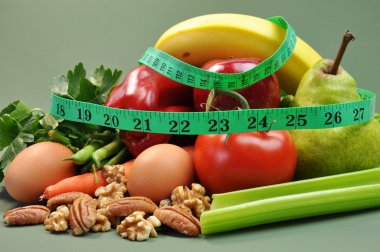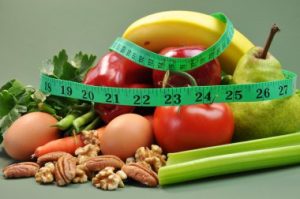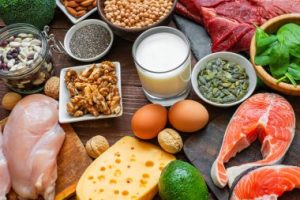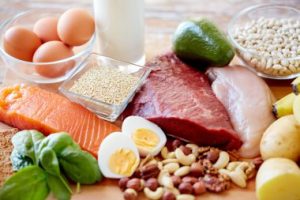
Can You Lose Weight With Diet (6 Helpful Diets)
Can you lose weight with diet alone, or is exercise essential for long-term success? Understanding the balance between food choices and physical activity is key to achieving sustainable weight loss. Losing weight with diet alone is a question that sparks endless curiosity and debate. Can simply changing what you eat lead to sustainable weight loss, or is there more to the equation? While diet plays a crucial role, the right approach can mean the difference between temporary results and lasting success. Let’s explore how strategic dietary choices can reshape your body and help you achieve your weight goals without relying on grueling workouts.

Can You Lose Weight With Diet
Yes, you can lose weight with diet alone, but combining diet with exercise leads to better long-term results. When you focus on reducing calorie intake and eating nutrient-dense foods, your body begins to burn fat for energy. By making mindful food choices, such as opting for whole grains, lean proteins, and healthy fats, weight loss becomes more achievable. However, the key to sustainable weight loss is creating a calorie deficit while maintaining balanced nutrition.
The Role of a Calorie Deficit
A calorie deficit is central to weight loss, which means you must consume fewer calories than your body burns. By monitoring your calorie intake and focusing on nutrient-rich foods, your metabolism uses stored fat for energy, leading to gradual and consistent fat loss.
Healthy Food Choices for Weight Loss
Choosing the right types of foods plays a significant role in losing weight. Foods high in fiber, like fruits and vegetables, help you feel full longer, while lean proteins such as chicken, fish, and tofu support muscle mass during weight loss. Avoiding processed foods and sugary snacks is another way to reduce calorie intake and improve overall health.
Popular Diets for Weight Loss
Many people explore specific diet plans like keto, low-carb, or intermittent fasting when trying to lose weight. These diets all aim to reduce calorie consumption by limiting certain food groups or eating patterns. While these methods can be effective, the best diet for weight loss is one that you can sustain in the long term and fits your lifestyle. Personalized meal plans tailored to your unique needs and preferences will offer the most sustainable results.
Importance of Hydration
Staying hydrated is a crucial, often overlooked factor in weight loss. Drinking water not only boosts metabolism but also helps curb hunger. Many people mistake thirst for hunger, leading to unnecessary calorie consumption. By drinking more water, you can prevent overeating and support your body’s fat-burning process.
The Role of Diet in Weight Loss
Basic Principle of Weight Loss
The role of diet in weight loss is crucial because it directly influences the body’s caloric intake, which is the key to creating a caloric deficit. The basic principle of weight loss revolves around consuming fewer calories than the body expends. While exercise can help burn calories and support overall health, dietary changes are often more effective in achieving a consistent calorie deficit.
Understanding metabolism also plays a role, as it determines how many calories the body burns at rest. Certain foods can either boost or slow down metabolic rate, impacting weight loss efficiency. Therefore, a well-balanced, nutrient-dense diet that maintains a caloric deficit is essential for effective weight loss.
Macronutrients
The role of diet in weight loss is crucial, with macronutrients playing a significant part in regulating energy balance and metabolism. Protein is particularly important as it increases satiety, helping to reduce overall calorie intake, and boosts metabolism through the thermic effect of food (TEF), which is the energy required to digest, absorb, and process nutrients.
Carbohydrates also influence weight loss, with a distinction between complex and simple carbs. Complex carbs, like whole grains, are digested more slowly, providing sustained energy and reducing insulin spikes, whereas high-glycemic simple carbs can lead to elevated insulin levels, promoting fat storage.
Fats, especially healthy fats from sources like avocados and nuts, promote satiety and are essential for balanced hormone function, which is critical for weight management and overall health. Balancing these macronutrients in the right proportions can support weight loss by managing hunger, metabolism, and fat storage.

Micronutrients
The role of diet in weight loss extends beyond calorie counting, with micronutrients playing a crucial part in optimizing metabolism and reducing cravings. Vitamins, minerals, and fiber are essential for maintaining a healthy metabolic rate and overall well-being during weight loss.
Vitamin D aids in regulating insulin levels and supporting fat-burning processes, while calcium helps the body break down fat more efficiently. Magnesium is vital for energy production, as it supports over 300 biochemical reactions, including those that control blood sugar and insulin. Iron is key for oxygen transport, ensuring muscles get the energy needed for fat metabolism.
Fiber, though not a micronutrient, is equally important, promoting satiety and preventing overeating by stabilizing blood sugar levels. Together, these nutrients create a foundation for sustainable weight loss by enhancing energy use and curbing cravings.
Types of Diets for Weight Loss
Calorie-Restricted Diet
A calorie-restricted diet is a traditional approach to weight loss that involves reducing the number of calories consumed daily to create a caloric deficit, which leads to weight loss. To determine how many calories you should consume, it’s essential to calculate your basal metabolic rate (BMR)—the number of calories your body needs to maintain basic functions at rest.
This number is then adjusted based on your activity level, resulting in a tailored calorie target for weight loss. Implementing portion control is a key strategy in this diet. Methods like using smaller plates, measuring serving sizes, and eating mindfully can help reduce portion sizes without leaving you feeling deprived, making it easier to stick to the calorie deficit while still enjoying a variety of foods.
Low-Carb Diets (e.g., Keto, Atkins)
Low-carb diets, such as the Keto and Atkins diets, focus on reducing carbohydrate intake to promote fat burning. In these diets, carbs are minimized to a level that encourages the body to enter ketosis, a metabolic state where fat is used as the primary energy source instead of glucose. This mechanism is believed to help with fat loss and often leads to significant short-term weight loss.

Low-Fat Diets
Low-fat diets focus on reducing fat intake to lower overall calorie consumption, as fats are calorie-dense (9 calories per gram) compared to proteins and carbohydrates (4 calories per gram). The goal is to create a calorie deficit that leads to weight loss. While these diets can be effective in the short term, they often present challenges in sustainability.
Many people struggle with managing hunger because fat helps increase satiety, and low-fat meals may feel less satisfying. Additionally, if the diet is not carefully balanced, it can lead to nutrient deficiencies, particularly in fat-soluble vitamins (A, D, E, K) and essential fatty acids, which are important for overall health.
Intermittent Fasting (IF)
Intermittent Fasting (IF) is a popular weight loss strategy that involves alternating between periods of eating and fasting to promote fat burning and improve insulin sensitivity. The idea is that by restricting the time you eat, your body shifts into a fat-burning mode during the fasting periods.
The most common approaches to IF include the 16:8 method, where you fast for 16 hours and eat within an 8-hour window; the 5:2 diet, where you eat normally for five days and significantly reduce your calorie intake for two days; and alternate-day fasting, where you alternate between days of normal eating and days of consuming very few calories. By focusing on when you eat rather than what you eat, IF helps regulate appetite and may aid in weight loss, though results can vary based on individual habits and metabolism.
Plant-Based Diets
Plant-based diets focus on consuming whole foods like fruits, vegetables, legumes, nuts, and seeds, which are rich in fiber, nutrients, and low in calories. The mechanism behind their effectiveness for weight loss lies in their emphasis on nutrient-dense, low-calorie foods that promote satiety, helping individuals feel full with fewer calories. This leads to a natural reduction in calorie intake, supporting weight loss over time. Additionally, plant-based diets have been linked to heart health due to their low saturated fat content and high levels of antioxidants, further benefiting overall well-being.
Balanced and Flexible Dieting
Balanced and flexible dieting is a popular approach for weight loss, centered on allowing a variety of food groups while maintaining a caloric deficit. The key mechanism behind this diet is energy balance—consuming fewer calories than the body burns, which leads to gradual weight loss.
By not eliminating entire food groups, this method promotes long-term sustainability, making it easier for individuals to stick with it without feeling overly restricted. Instead of focusing on strict rules, flexible dieting encourages moderation and mindful eating, allowing occasional indulgences while still progressing toward weight loss goals. Its effectiveness lies in its adaptability, reducing the likelihood of diet burnout and promoting healthier habits.
Importance of Nutritional Quality
Nutrient-Dense vs. Empty Calories
Nutritional quality plays a crucial role in overall health and well-being, with a key distinction between nutrient-dense foods and those high in empty calories. Nutrient-dense foods, such as vegetables, fruits, lean proteins, and whole grains, provide essential vitamins, minerals, and fiber, which support metabolic functions, energy levels, and disease prevention.
On the other hand, processed foods high in sugar and refined carbohydrates contribute to weight gain, insulin resistance, and increased fat storage. These empty-calorie foods often lack nutritional value, leading to overeating and poor health outcomes. Prioritizing whole foods helps maintain a healthy weight, stabilize blood sugar, and promote long-term health.
Satiety and Hunger Control
Nutritional quality plays a crucial role in managing satiety and hunger control, impacting overall health and weight management. High-fiber foods, such as fruits, vegetables, and whole grains, contribute to a feeling of fullness by slowing digestion and stabilizing blood sugar levels, which helps prevent sudden hunger pangs. Protein-rich diets are also effective in reducing hunger and preventing muscle loss, especially during weight loss, as protein supports muscle maintenance and promotes a prolonged sense of satiety.
Additionally, incorporating healthy fats, like those found in avocados, nuts, and olive oil, can enhance satiety by slowing digestion and reducing the likelihood of overeating. Together, these nutritional components create a balanced approach to hunger management and support long-term health.
Blood Sugar Regulation
Nutritional quality is crucial for effective blood sugar regulation, which plays a key role in overall health and weight management. Consuming low glycemic index (GI) foods helps prevent insulin spikes, which can reduce fat storage and curb hunger by maintaining steady blood sugar levels.
In contrast, sugary and processed foods often lead to rapid increases in blood sugar, causing frequent insulin surges that can result in cravings and subsequent weight gain. By focusing on high-quality, low GI foods and minimizing intake of sugary and processed options, individuals can better manage their appetite, support metabolic health, and maintain a balanced weight.

Challenges and Considerations with Diet-Only Weight Loss
Diet-only weight loss presents several challenges and considerations. Individuals with a slow metabolism may struggle to lose weight despite calorie restriction due to metabolic factors that make burning calories less efficient. Weight loss plateaus can also occur, where progress stalls even with ongoing calorie reduction, often requiring adjustments to the diet or other strategies.
Without incorporating physical activity, there is a risk of losing muscle mass, which can further slow down metabolism and impact overall health. Psychological challenges, such as diet fatigue, can make it difficult to adhere to restrictive eating plans long-term. Emotional eating, triggered by stress, boredom, or other emotions, can undermine diet goals and lead to overeating. Additionally, restrictive diets may increase the risk of nutrient deficiencies, as they can limit the intake of essential vitamins and minerals necessary for overall well-being.
Importance of Combining Diet with Lifestyle Changes
Exercise and Physical Activity
Combining diet with lifestyle changes, including exercise and physical activity, is crucial for achieving overall health and wellness. Strength training, or resistance exercises, plays a vital role in preserving muscle mass and boosting metabolism, which can be especially beneficial as you age. By incorporating exercises like weight lifting or bodyweight workouts, individuals can maintain lean muscle tissue, improve bone density, and enhance metabolic rate.
Additionally, cardio exercises, such as running, swimming, or cycling, are essential for promoting heart health and increasing calorie expenditure. Regular cardiovascular activity helps improve circulation, supports weight management, and reduces the risk of chronic diseases. Together, these components create a balanced approach to health, addressing both muscular strength and cardiovascular fitness while complementing dietary efforts for optimal results.
Behavioral Changes
Combining diet with lifestyle changes is crucial for achieving sustainable health and wellness goals. Behavioral changes, such as mindful eating, play a significant role in enhancing awareness and control over eating habits. Techniques like paying full attention to each bite, recognizing hunger and satiety cues, and avoiding distractions during meals can help foster a healthier relationship with food.
Additionally, managing sleep and stress is vital, as poor sleep and high stress levels can disrupt metabolic processes and contribute to weight gain or hinder weight loss efforts. Prioritizing adequate sleep and implementing stress-reduction strategies, such as relaxation exercises or mindfulness practices, can support overall well-being and complement dietary adjustments for more effective and long-lasting results.
Social and Environmental Factors
Combining diet with lifestyle changes is crucial for achieving and maintaining long-term health goals. Social and environmental factors play a significant role in this process. Support systems, such as accountability partners, group support, and coaching, are vital for sustaining dietary changes. They provide motivation, encouragement, and practical advice, helping individuals stay committed to their goals.
Additionally, the environment has a profound impact on dietary adherence. Access to healthy food and the ability to eliminate triggers, like junk food, from one’s surroundings can make a substantial difference. Creating a supportive environment and leveraging social support can enhance the effectiveness of dietary changes and contribute to overall well-being.
Sustainable Weight Loss Practices
Sustainable weight loss practices hinge on making gradual, consistent changes to one’s diet rather than resorting to drastic, temporary measures. Small adjustments are more manageable and less likely to lead to burnout compared to extreme dieting. Flexibility is key; allowing occasional treats and incorporating a variety of foods helps prevent the monotony and frustration often associated with restrictive diets.
Shifting focus from short-term weight loss goals to long-term health improvements fosters a healthier mindset and better results. Transitioning from the weight loss phase to maintenance is crucial for sustaining progress and avoiding yo-yo dieting. Embracing a balanced, adaptable approach helps prevent the common pitfall of regaining lost weight, promoting lasting, healthy lifestyle changes.
Frequently Asked Questions (FAQ) About Can You Lose Weight With Diet
Q1. Can I lose weight with diet alone?
A. Yes, losing weight is primarily influenced by creating a calorie deficit, meaning you consume fewer calories than your body uses. A well-planned diet that reduces caloric intake while maintaining essential nutrients can lead to weight loss, even without exercise. However, combining diet with physical activity can enhance results and improve overall health.
Q2. What types of diets are most effective for weight loss?
A. Effective diets for weight loss focus on reducing calories and promoting healthier eating patterns. Popular examples include:
-Low-carb diets (e.g., ketogenic, Atkins)
– Low-fat diets
– Intermittent fasting
– Mediterranean diet
It’s important to choose a diet that suits your lifestyle and provides balanced nutrition.
Q3. How quickly can I expect to lose weight with diet changes?
A. Healthy weight loss typically ranges from 1 to 2 pounds per week. Extreme diets promising rapid weight loss often lead to muscle loss and nutritional deficiencies. Sustainable weight loss occurs gradually as your body adjusts to a calorie deficit.
Q4. Do I have to count calories to lose weight?
A. Counting calories can be helpful but isn’t always necessary. Some people achieve weight loss by focusing on portion control, eating nutrient-dense foods, and avoiding processed foods and sugary beverages. However, understanding your calorie intake is useful for staying on track with your goals.
Q5. Will I still lose weight if I eat healthy but don’t cut calories?
A. Eating healthy is crucial, but weight loss still depends on a calorie deficit. While nutrient-dense foods like fruits, vegetables, and lean proteins are essential for good health, you must also manage portion sizes and caloric intake to lose weight effectively.
Q6. Is it possible to lose weight on a high-protein diet?
A. Yes, high-protein diets can promote weight loss by helping you feel fuller longer, reducing cravings, and supporting muscle maintenance. Protein also has a higher thermic effect, meaning your body uses more energy to digest it compared to fats or carbs, which can contribute to weight loss.
Q7. Are cheat meals allowed on a weight-loss diet?
A. Occasional cheat meals can be part of a balanced approach to dieting, but it’s important not to overindulge or let them derail your progress. If managed carefully, cheat meals can provide a mental break and help with long-term adherence to a diet plan.
Q8. Can I lose weight without cutting out any food groups?
A. Yes, weight loss is achievable without eliminating entire food groups. A balanced approach that focuses on portion control, reducing processed and high-calorie foods, and eating a variety of nutrient-dense foods from all food groups can still result in weight loss.
Q9. Do I need to avoid fats to lose weight?
A. No, you don’t have to avoid fats entirely. Healthy fats from sources like avocados, nuts, seeds, and olive oil can be part of a weight-loss diet. These fats can help you feel full and provide essential nutrients, but it’s important to moderate fat intake to avoid excess calories.
Q10. Can I still eat out and lose weight?
A. Yes, it’s possible to eat out and stay on track with your weight-loss goals. Many restaurants offer healthier options or allow you to customize your meal. Look for grilled, steamed, or baked dishes, avoid fried or creamy foods, and be mindful of portion sizes to stay within your calorie limits.
Q11. Will skipping meals help me lose weight faster?
A. Skipping meals isn’t recommended as a sustainable weight-loss strategy. It can lead to overeating later in the day or cause nutrient deficiencies. Instead, aim to eat balanced, portion-controlled meals throughout the day to support consistent weight loss.
Q12. Can I lose weight just by eating less sugar?
A. Reducing sugar intake can aid weight loss by lowering overall calorie consumption and reducing cravings for high-calorie, processed foods. Swapping sugary drinks, snacks, and desserts for healthier alternatives can be a key factor in weight management.
Conclusion
In conclusion, losing weight through diet is not only possible but also highly effective when done properly. A well-balanced diet that focuses on portion control, nutrient-dense foods, and reducing calorie intake can lead to sustainable weight loss. However, it is essential to choose a plan that aligns with individual health needs and lifestyle to ensure long-term success. Incorporating healthy eating habits, staying consistent, and making mindful choices are key to achieving and maintaining weight loss goals. Combining diet with regular physical activity can further enhance results, supporting overall health and well-being.